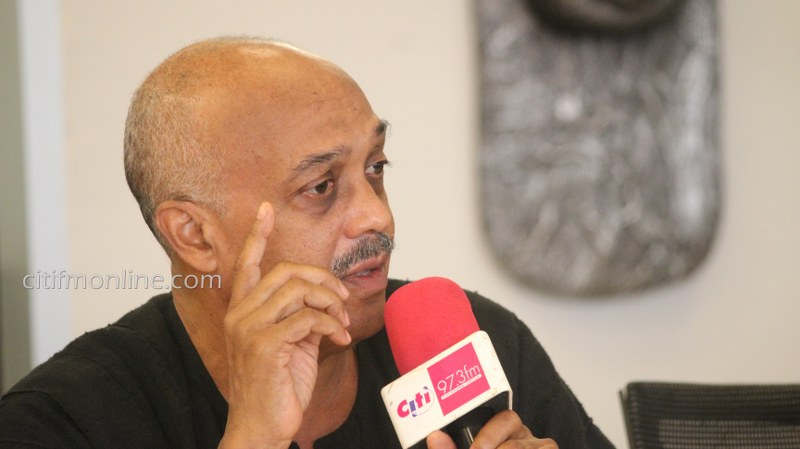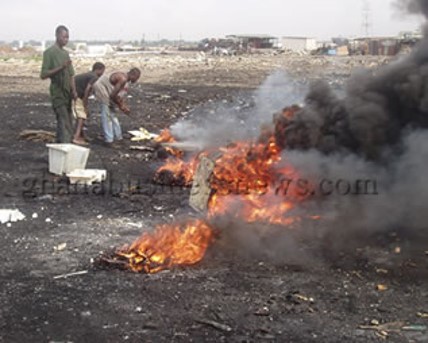
Pressure Group Occupy Ghana has watered down an alleged report by the Bureau of National Investigations (BNI) and National Security on the Bulk Oil Storage and Transportation (BOST) contaminated fuel saga, describing it as “deficient.”
The Minority Leader in Parliament, Haruna Iddrisu on Wednesday hinted that the said report sought to exonerate the Managing Director of BOST , Alfred Obeng Boateng, of any wrongdoing in the transaction.
Mr. Iddrisu indicated that the Minister of Energy , Boakye Agyarko “in a most bizarre and shameful twist,…addressed a press conference on July 4, 2017 claiming that even before his own committee would get to work, the BNI and National Security have exonerated the BOST Managing Director, Mr Alfred Obeng Boateng, and absolved him of all wrongdoing.”Commenting on the development, Occupy Ghana in a statement pointed out that it “would have had no quarrel” with the said report if it had “simply set out facts that had come to its knowledge in the course of its investigations.”
It believes the BNI went beyond its jurisdiction by “expressing opinions as to who is or is not culpable in the matter.”
“We are vehemently opposed to that.The alleged report apparently attempts to absolve some key and critical actors in the matter. We say these because this BNI Report is so deficient in several, material ways and leaves so many questions unanswered that it is difficult to agree with several of its opinions and conclusions,” Occupy Ghana added.
The group therefore insisted that “the work and mandate of the committee” set up by the Energy Minister to investigate the scandal continue, adding that “the alleged report at best be considered as one of the materials that the Committee may consider, and with liberty, based on evidence that it might recover, to agree or disagree with what is contained in the BNI Report.”
Occupy Ghana, in its statement, also raised the following questions which the BNI left unanswered in its report:
- Who purchased and imported the product into Ghana, and from whom?
- How much was paid for it?
- Who was in charge of holding or storing the product until it was sold or otherwise disposed of?
- Under what circumstances and under whose control did the product become “contaminated”?
- Exactly how did the “contamination” happen?
- Exactly when did the “contamination” happen and/or when was it discovered?
- if so, who was responsible for it?
- Were there any remedial measures that could have been taken to “un-contaminate” or purify the product apart from selling it in the “contaminated” state, and if so were those
- Did BOST obtain the technical report that is a mandatory requirement for disposal of property under section 83(1) of the Public Procurement Act, 2003 (Act 663), and if so, who prepared that report and what did it say?
- Did BOST convene a Board of Survey to report on the product, and if so, did that Board recommend the best method of disposal of the product?
- Did the relevant BOST officer complete a Board of Survey Form, and if so, what did the Form say?
- Were the Board of Survey’s recommendations, if any, approved by the head of BOST, and if so, when?
- If the cause of the “contamination” was other than “wear and tear” (to the extent that this term may even be applicable to the product in question), what procedure was established by the Board of Survey for handling any losses, and to what extent was that procedure followed before the product was disposed of?
- Did the disposal of the product comply with the relevant portions of section 84 of Act 663, particularly by public tender to the highest bidder or by public auction, each being subject to reserve price?
- Which entities submitted bids or participated in the auction, and how much did each bid?
- Was due diligence conducted on those entities to, at the very least, ascertain (i) if they had been duly formed or incorporated, (ii) who were the human players behind those entities, and (iii) whether the entities are duly registered by the National Petroleum Authority to engage in that business?
- Was the Board of Directors of BOST involved in this transaction at all, and if so what do the relevant Board minutes say?
- If any of the provisions and procedures under Part VII of Act 663 were not followed, what steps are being taken to exact the civil and criminal sanctions prescribed by that Act for its breach?
- Has Ghana suffered any financial loss from this transaction, and if so, are there grounds to charge anyone with the offence of “causing financial loss”?
–
By: Marian Ansah/citifmonline.com/Ghana
Follow @EfeAnsah




















Facebook
Twitter
Pinterest
Instagram
Google+
YouTube
LinkedIn
RSS